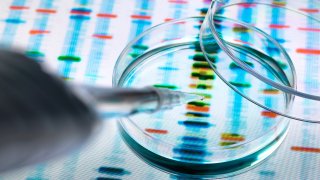
The Legal Aid Society has filed a federal lawsuit accusing the New York Police Department of surreptitiously collecting genetic material from thousands of New Yorkers and storing it indefinitely in a “rogue” DNA database.
According to the lawsuit filed in federal court in Manhattan on Monday, the police routinely offer people who are being questioned about a crime a beverage, a cigarette or chewing gum and then collect DNA from the items.
The genetic material is stored and cataloged in a “suspect index” that puts people’s DNA profiles through “a genetic lineup that compares the profiles against all past and future crime scene DNA evidence — all without obtaining a warrant or court order to conduct these DNA searches,” the lawsuit says.
“Thousands of New Yorkers, most of whom are Black and brown, and many of whom have never been convicted of any crime, are illegally in the city’s rogue DNA database, which treats people as suspects in every crime involving DNA,” Phil Desgranges, the Legal Aid Society's supervising attorney in the special litigation unit of the criminal defense practice, said in a news release.
Get Tri-state area news and weather forecasts to your inbox. Sign up for NBC New York newsletters.
The class action lawsuit was filed by two Legal Aid clients who say their DNA was collected without their consent. It names New York City, several top police officials and the city's chief medical examiner as defendants.
Nicholas Paolucci, a spokesperson for the city law department, said Tuesday that the department would review the lawsuit.
“The local DNA database complies with all applicable laws and is managed and used in accordance with the highest scientific standards set by independent accrediting bodies that have regularly reapproved the existence of the database,” the chief medical officer's office said in a statement.
Local
“The NYPD’s investigations and tactics, including the collection of DNA, are guided by what is authorized by the law, the wealth of case law from the courts, and the best practices of the law enforcement community," Sgt. Edward Riley, a police spokesperson, said in a statement.
Riley said the department collects DNA “to legally identify the correct perpetrator, build the strongest case possible for investigators and our partners in the various prosecutor’s offices, and bring closure to victims and their families."



